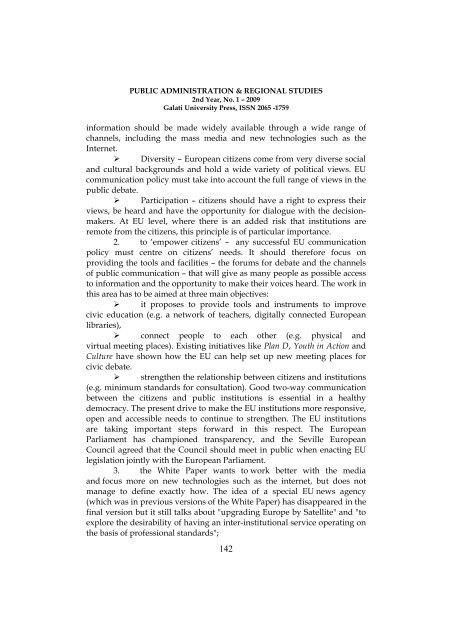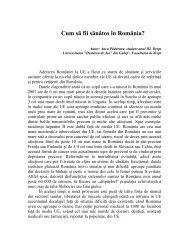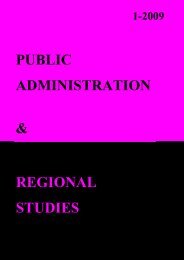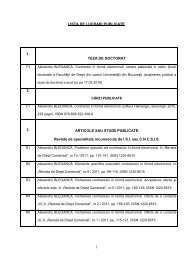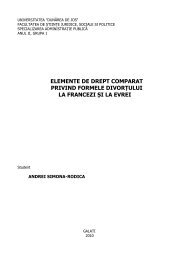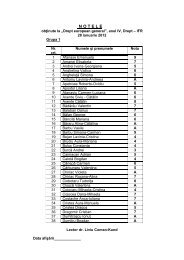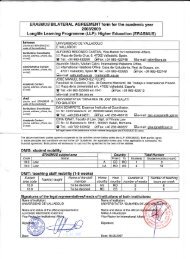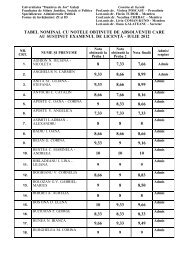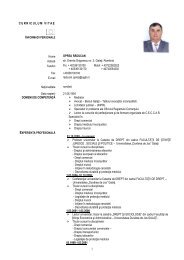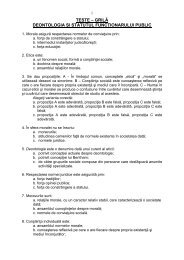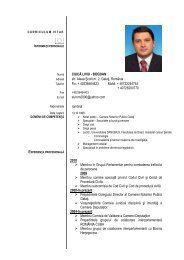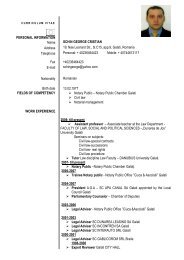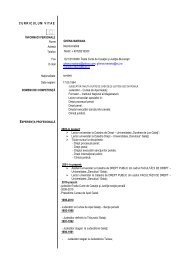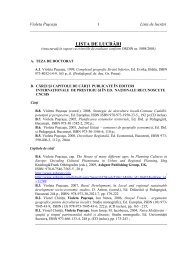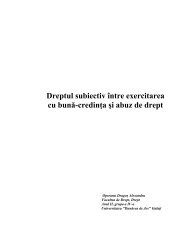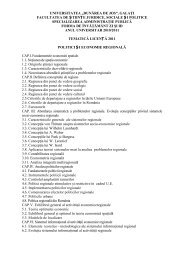regional studies public administration - Facultatea de Drept ...
regional studies public administration - Facultatea de Drept ...
regional studies public administration - Facultatea de Drept ...
You also want an ePaper? Increase the reach of your titles
YUMPU automatically turns print PDFs into web optimized ePapers that Google loves.
PUBLIC ADMINISTRATION & REGIONAL STUDIES<br />
2nd Year, No. 1 – 2009<br />
Galati University Press, ISSN 2065 -1759<br />
information should be ma<strong>de</strong> wi<strong>de</strong>ly available through a wi<strong>de</strong> range of<br />
channels, including the mass media and new technologies such as the<br />
Internet.<br />
‣ Diversity – European citizens come from very diverse social<br />
and cultural backgrounds and hold a wi<strong>de</strong> variety of political views. EU<br />
communication policy must take into account the full range of views in the<br />
<strong>public</strong> <strong>de</strong>bate.<br />
‣ Participation – citizens should have a right to express their<br />
views, be heard and have the opportunity for dialogue with the <strong>de</strong>cisionmakers.<br />
At EU level, where there is an ad<strong>de</strong>d risk that institutions are<br />
remote from the citizens, this principle is of particular importance.<br />
2. to ‘empower citizens’ – any successful EU communication<br />
policy must centre on citizens’ needs. It should therefore focus on<br />
providing the tools and facilities – the forums for <strong>de</strong>bate and the channels<br />
of <strong>public</strong> communication – that will give as many people as possible access<br />
to information and the opportunity to make their voices heard. The work in<br />
this area has to be aimed at three main objectives:<br />
‣ it proposes to provi<strong>de</strong> tools and instruments to improve<br />
civic education (e.g. a network of teachers, digitally connected European<br />
libraries),<br />
‣ connect people to each other (e.g. physical and<br />
virtual meeting places). Existing initiatives like Plan D, Youth in Action and<br />
Culture have shown how the EU can help set up new meeting places for<br />
civic <strong>de</strong>bate.<br />
‣ strengthen the relationship between citizens and institutions<br />
(e.g. minimum standards for consultation). Good two-way communication<br />
between the citizens and <strong>public</strong> institutions is essential in a healthy<br />
<strong>de</strong>mocracy. The present drive to make the EU institutions more responsive,<br />
open and accessible needs to continue to strengthen. The EU institutions<br />
are taking important steps forward in this respect. The European<br />
Parliament has championed transparency, and the Seville European<br />
Council agreed that the Council should meet in <strong>public</strong> when enacting EU<br />
legislation jointly with the European Parliament.<br />
3. the White Paper wants to work better with the media<br />
and focus more on new technologies such as the internet, but does not<br />
manage to <strong>de</strong>fine exactly how. The i<strong>de</strong>a of a special EU news agency<br />
(which was in previous versions of the White Paper) has disappeared in the<br />
final version but it still talks about "upgrading Europe by Satellite" and "to<br />
explore the <strong>de</strong>sirability of having an inter-institutional service operating on<br />
the basis of professional standards";<br />
142


